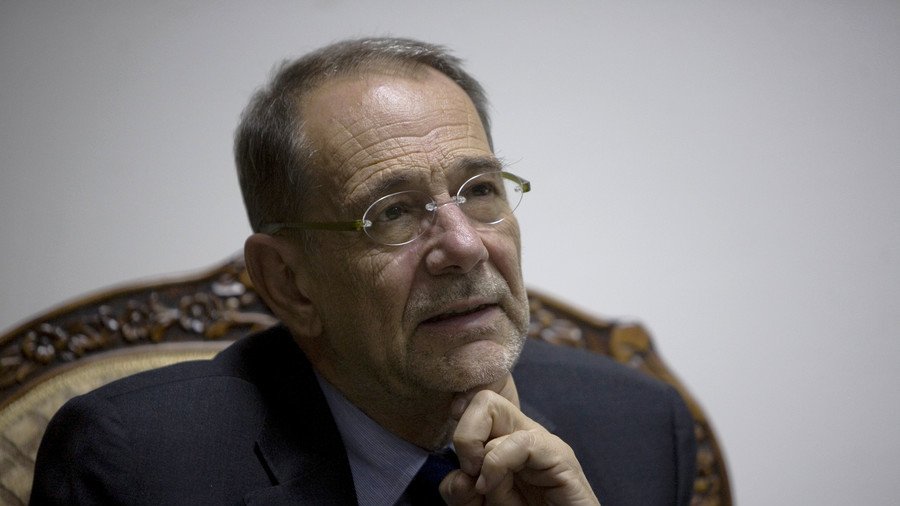A former secretary general of NATO, who played a key role in negotiating the Iran nuclear deal, has been denied a US visa waiver because of a visit he made to Iran in 2013. The denial stems from an Obama-era visa policy.
Javier Solana, who served as NATO secretary general from 1995-1999, was due to speak at an event at the Washington, DC-based Brookings Institution, but he learned that he would not be able to enter the country after unsuccessfully applying for an electronic visa waiver.
It appears that Solana, who also served as Spain's foreign minister and the EU's foreign policy chief, was flagged by a system put in place by the Obama administration in 2016, which prevents citizens of 38 countries who had traveled to Iran, Iraq, Libya, Somalia, Sudan, Syria or Yemen after March 1, 2011, from coming to the United States using the Electronic System for Travel Authorization (ESTA).
Solana traveled to Iran in 2013 as part of his efforts to help negotiate the 2015 Joint Comprehensive Plan of Act (JCPOA), colloquially known as the Iran nuclear deal.
Those who do not qualify for an online waiver are required to complete a more rigorous visa application process, which includes an in-person interview at a US embassy or consulate.
However, waivers can be granted on a case-by-case basis, and Solana expressed optimism that the decision to deny him a waiver would be reversed upon review. The Spanish citizen, who was once at the helm of a US-led military alliance, said that he considered the snub "to be more bureaucratic than political."
"I went [to Iran] to represent all those who had been involved in the negotiations," Solana said, referring to his role in hammering out the 2015 nuclear deal with Tehran. "I'll see what I can do to fix this. It's a computer – an algorithm – and if you've been in Iran lately, they take you out of the system. It's like you don't exist visa-wise, because you can't visit the country."
Describing his waiver denial as a "mean decision," Solana told Spanish television that it was an ill-advised policy because "some people have to visit these complicated countries to keep negotiations alive."
The news sparked outrage on Twitter, with many appearing to lay the blame for the decision on US President Donald Trump.
"That sounds like [Solana] being generous to a fault with an administration that has shown itself to be petty, childish, and contemptuous of All Things Touched By Obama," one Twitter user wrote in response to Solana's tepid comments on his denied waiver. "Trumpian madness on the rampage!" another user commented.
Weighing in on the controversy, French Ambassador to the US Gerard Araud noted that the visa policy was actually introduced under the Obama administration.
"Strange that our American friends are discovering only now this Obama regulation," he wrote on Twitter. "Scores of European scholars, parliamentarians, and business people have already faced the same constraints."
Trump unilaterally exited the Iran nuclear deal last month, despite vocal opposition to the move from Washington's European allies.
Tehran has warned that it may pull out of the accord – which dropped international sanctions in exchange for tight restrictions on Iran's nuclear capabilities – if it's unable to cut an attractive deal with the remaining European signatories.
Like this story? Share it with a friend!

